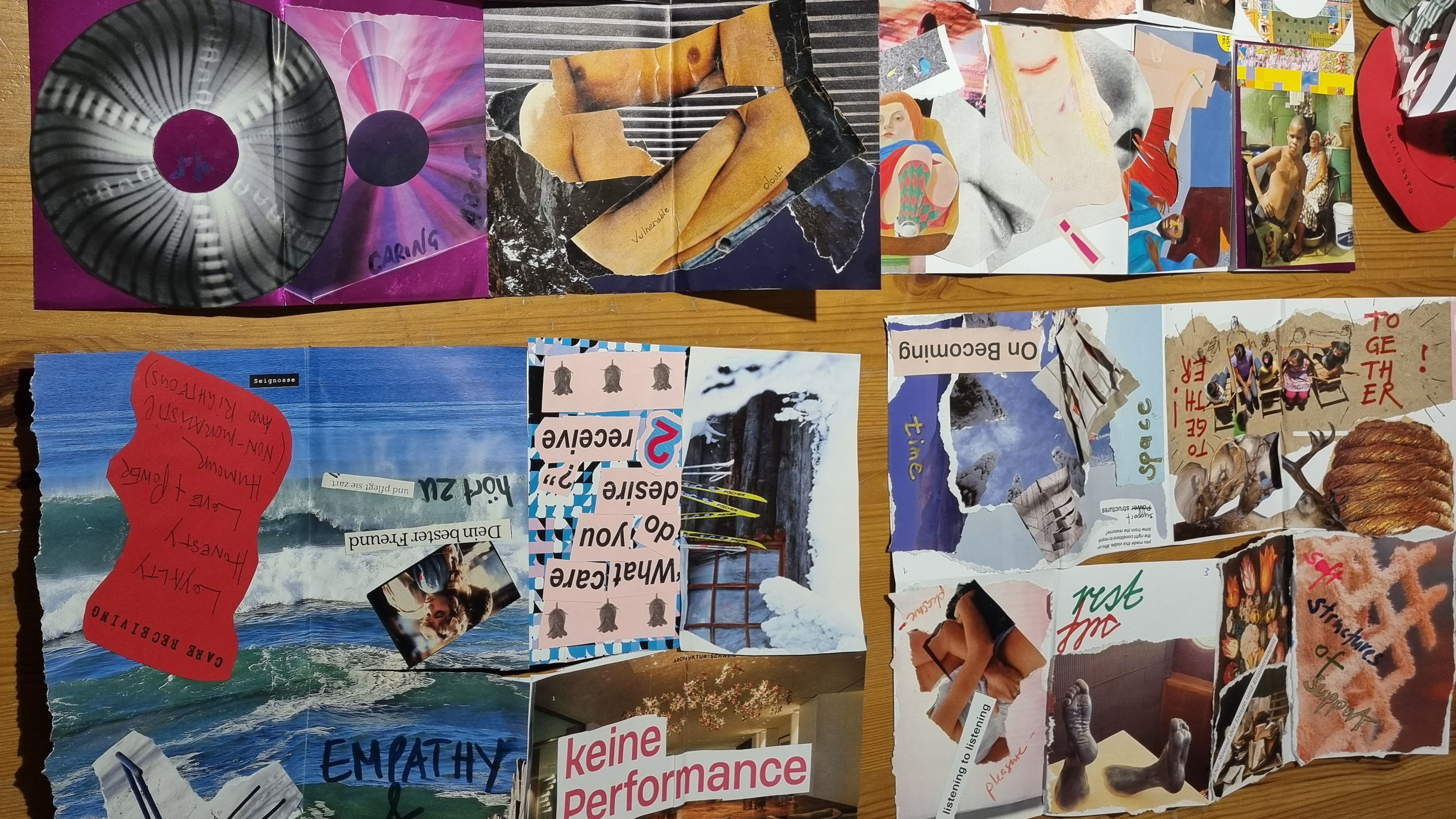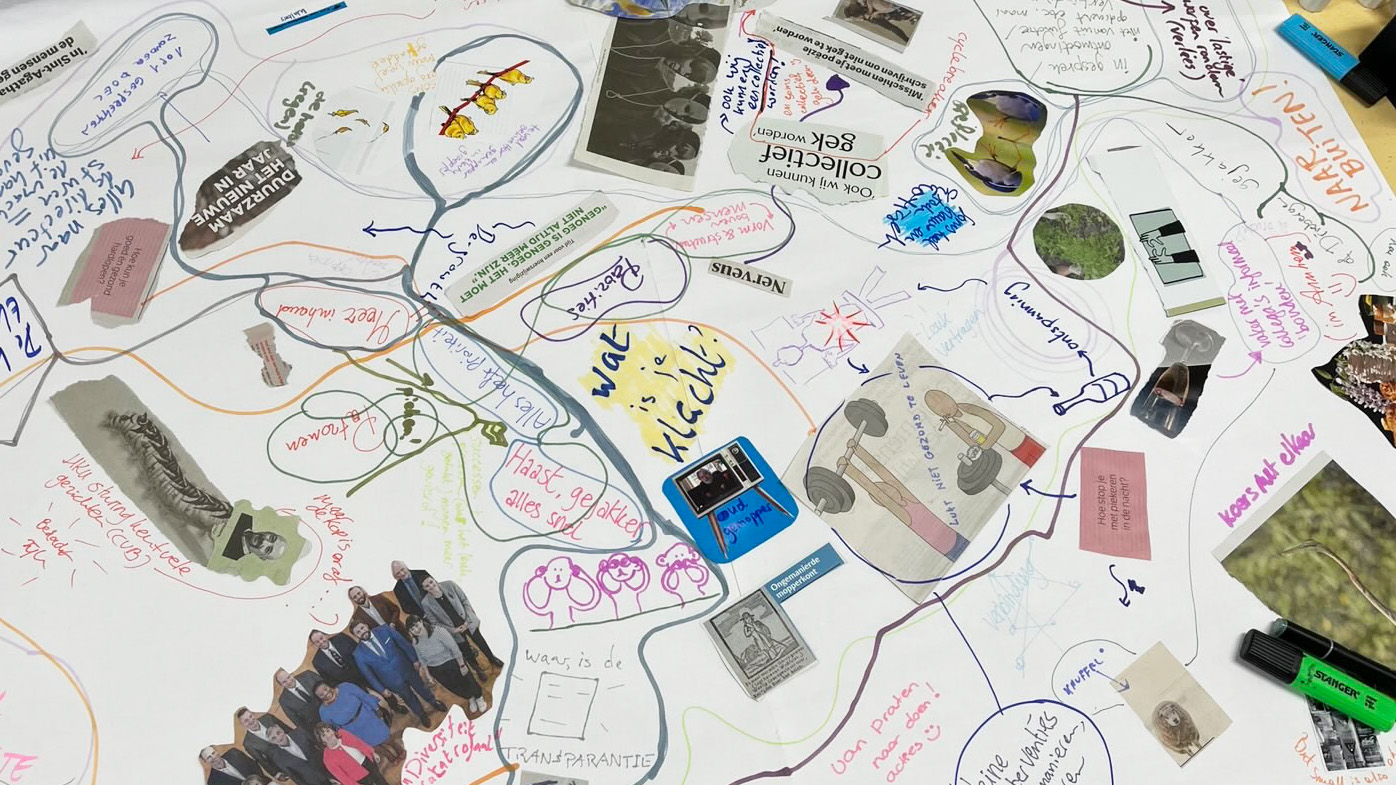Care as critical practice: unlearning the norm, doing care differently
Queering Pedagogies of Care explores how care can move beyond compliance and convention, becoming a radical force for rethinking education, institutions, and communities. Building on feminist and queer theories of care, this research line understands care not as neutral or private, but as collective, political, and deeply relational.
To queer pedagogies of care means to unlearn the norm, to unsettle fixed notions of who gives and receives care, and to experiment with alternative practices that embrace complexity, interdependence, and embodied learning. Through this lens, care is not about assimilation or productivity, but about creating conditions where diverse needs, identities, and voices are centred.
 Learning from Queer and Trans* Practices
Learning from Queer and Trans* Practices
In workshops and research projects, we investigate how practices and knowledges rooted in queer and trans* experience, offer radical pedagogies of care. Emerging from contexts of exclusion and precarity, these practices demonstrate how care can be improvised, reclaimed, and sustained in the margins. They teach us about boundary-setting, risk, visibility, and solidarity, critical lessons for higher arts education today.
An example of this is the collaboration with PhD researcher Milo van der Maaden. This work engages with these practices and allows us to collectively ask: who is cared for in our institutions? Who decides what care looks like? And how might we imagine new ways of caring that resist assimilation while supporting those most often pushed to the edges?

Collective Experimentation
Concrete initiatives such as the CAREvan community embody these principles in practice. Meeting without an agenda and protecting non-productivity, CAREvan creates a space to address what is not urgent but important. It nurtures a culture of mutual listening and engagement across different roles within the institution. By foregrounding care as a shared responsibility, these experiments reimagine how higher arts education can itself become a caring institution, supporting, empowering, and valuing both individuals and communities.